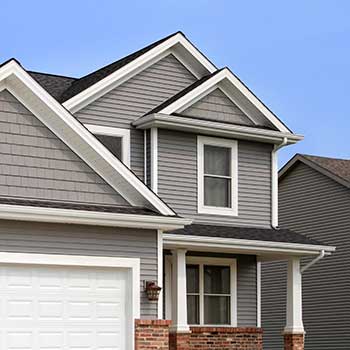Car Crash Lawyers
Premises Liability Law

Premises Liability law is the body of law which makes the person who is in possession of land or premises responsible for certain injuries suffered by persons who are present on the premises.
Although some premises cases, such as “slip and fall” cases, can seem simple, in some states the law now very much favors the premises owner.
In assessing this type of case, it is often helpful to consult with a premises liability attorney. A premises owner faced with a lawsuit should file a claim with their insurance carrier.
Premises Liability Law
Within the context of premises liability, a person “possesses” land or premises when:
- The person is in occupation of the land with intent to control it;
- The person has been in occupation of land with intent to control it if no other person has subsequently occupied it with intent to control it; or
- The person is entitled to immediate occupation of the land if no other person is in possession as just defined.
The Status of the Plaintiff
Under the premises liability law of most jurisdictions, it is necessary to determine if the plaintiff was an “invitee“, a “licensee“, or a “trespasser“. The defendant’s duty to the plaintiff can vary significantly depending upon how the plaintiff is classified. (Some jurisdictions have modified these definitions.) In the definitions below, “premises” should be read broadly to include land, premises, or places of business. The “possessor” is the person in possession of the premises.
Invitee: An invitee is a person who is invited to enter or remain on the premises for a commercial benefit to the possessor of premises, or for a purpose directly or indirectly connected with business dealings with the possessor. An invitation may be either express or implied. (Example: A customer in a department store is an invitee, as the department store actively invites the public to come to the premises and to purchase merchandise while on the premises.) A premises owner owes the highest duty of care to an invitee.
Typically, a possessor has a duty to use ordinary care to warn or otherwise protect an invitee from risks of harm from a condition on the possessor’s premises if:
- The risk of harm is unreasonable, and
- The possessor knows or in the exercise of ordinary care should know of the condition, and should realize that it involves an unreasonable risk of harm to an invitee.
The possessor may have a duty to periodically inspect the premises for the introduction of hazards to invitees. For example, a grocery store may be obligated to periodically check its floors for the presence of spilled or broken merchandise and to make sure that its products are not likely to fall from its shelves.
Licensee: A licensee is a person who is invited to enter or remain on the premises for any purpose other than a business or commercial one with the express or implied permission of the owner or person in control of the premises. A social guest is considered to be a licensee, not an invitee.
Typically, a possessor of premises is liable for physical harm caused to a licensee by a condition on the premises if, but only if, the plaintiff establishes the following three elements:
- The possessor knew or should have known of the condition, should have realized that it involved an unreasonable risk of harm to the licensee, and should have expected that the licensee would not discover or realize the danger;
- The possessor failed to exercise reasonable care to make the condition safe, or to warn the licensee of the condition and the risk involved; and
- The licensee did not know or have reason to know of the condition and the risk involved.
For example, if a homeowner knows that one of the steps leading into a basement is broken (but would not appear to be broken to a reasonably observant individual), the homeowner may be liable to a guest who, without notice of the broken step, is injured when the step gives way.
Trespasser: A trespasser is a person who goes upon the premises of another without an express or implied invitation, for his or her own purposes, and not in the performance of any duty to the owner. It is typically not necessary for a defendant to establish that the trespasser had unlawful intent in making such an entry.
Where premises owners are not aware of the presence of trespassers, they typically have no duty to warn a trespasser of any dangers or to make their premises safe for the benefit of a trespasser. If the premises owner is aware of the presence of trespassers, the premises owner may be obligated to exercise ordinary care in relation to the safety of a trespasser. For more information, contact a premises liability attorney today.
Retaining an Experienced Premises Liability Attorney
If you’re looking for an experienced and reputable premises liability attorney, contact Kehoe Sands Law today to schedule your free in-person consultation. We have been helping injured victims of accident cases here in Oregon for over 28 years. Get experience, professionalism, and respect on your side today.










